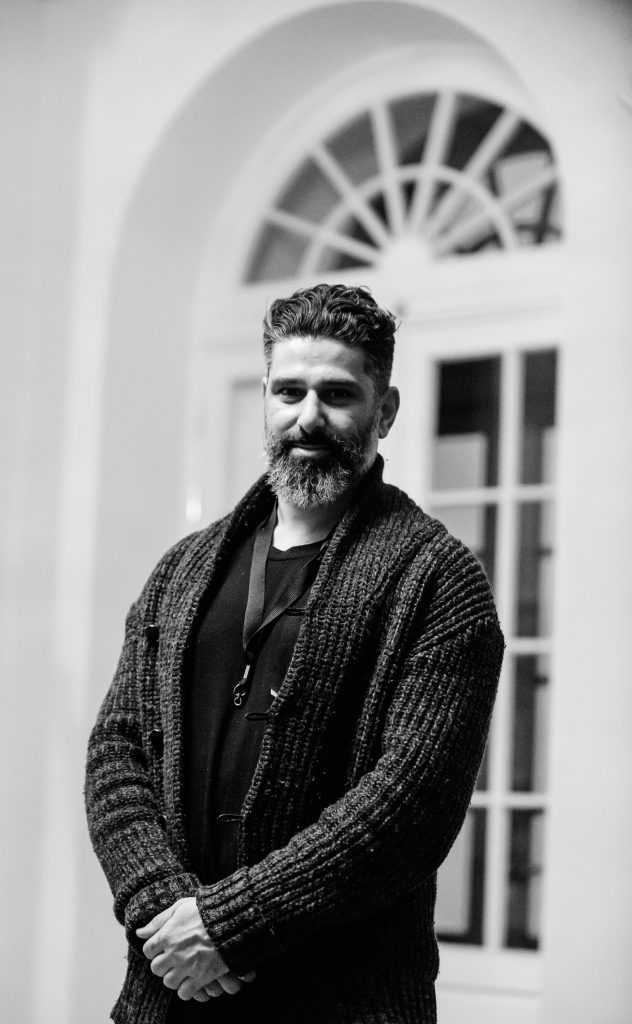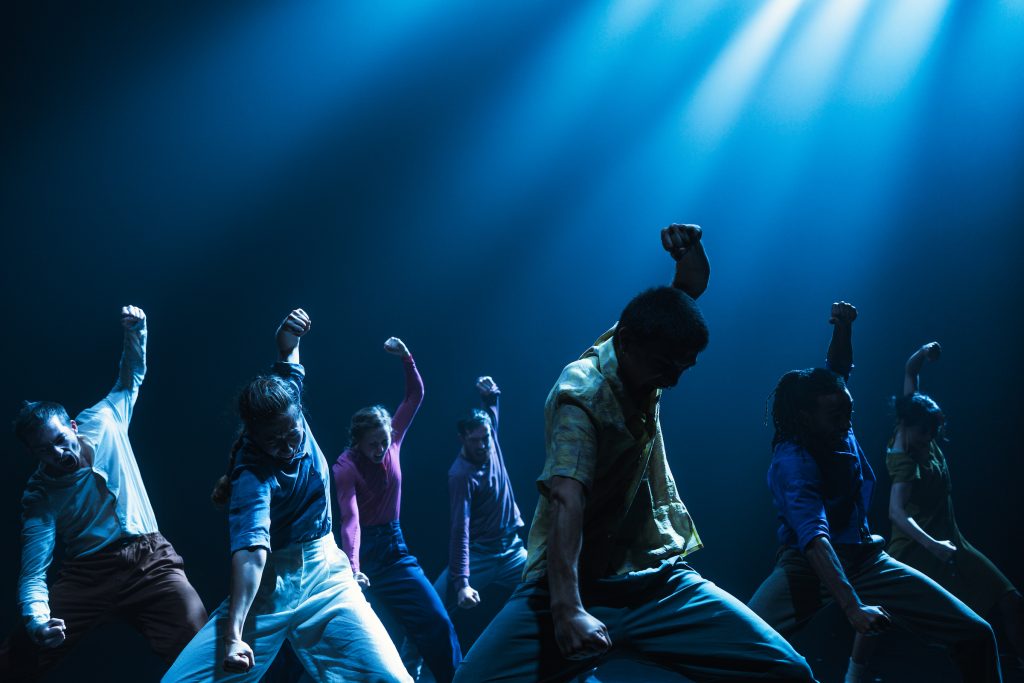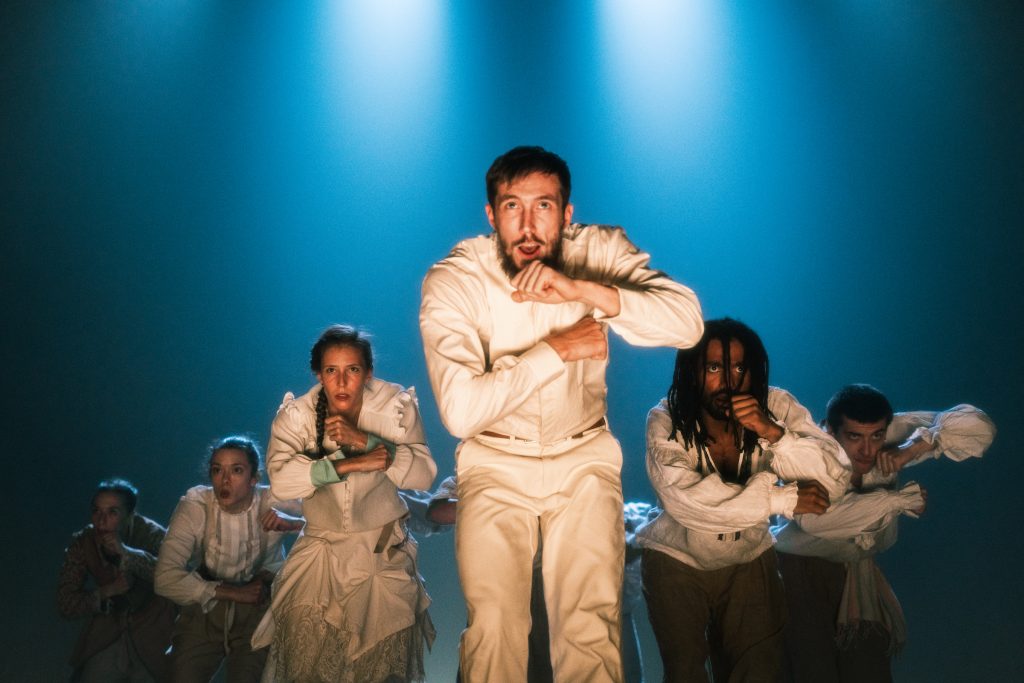 Photo by by Alexander Kurov
Photo by by Alexander Kurov Photo by by Todd Macdonald
Photo by by Todd Macdonald Photo by by Todd Macdonald
Photo by by Todd Macdonald
JAMES STRECKER: Please tell us what you want the public to know about your newest work. For instance, what exactly is it and why does it exist? How is it new?
BRUNO GUILLORE: I do not want audiences to know too much about it ahead of the time. I would prefer that they come not knowing anything. Come to the theatre with an open mind, see it, hear it, experience the work and let it take you through a rollercoaster of emotions.
JS: What kind of audience will this project interest? What new audience are you also seeking? Why to both questions?
BG: Everyone. A lot of the work is about human nature; therefore, everyone can connect to it regardless of age, demographic or gender.
JS: What might others not understand or appreciate about this work?
BG: The work is self-explanatory but open at the same time. There are enough clues for the audience to all go in a similar direction but it’s open enough for everyone to see what they want to see. It’s like a puzzle with some of the pieces muddled, allowing your imagination to fill in the gaps, creating your own, unique interpretation of the work.
JS: Please give us a brief autobiography, some stuff about yourself that is relevant to your work.
BG: I trained at the Conservatoire de Paris, under the direction of Quentin Rouillier. Today, I am Associate Artistic Director and founding member of the Hofesh Shechter Company and have been involved in all of Hofesh’s creations. I have also performed in Uprising, In your rooms, Political Mother, Political Mother: The Choreographer’s Cut, Survivor, Sun, barbarians. Additionally, I have performed with various companies, including Ballet Junior de Genève, Luzern Ballet and Komische Oper Berlin, and Ballet Gulbenkian, among others. I was also featured in the film Passengers by Richard Wherlock.
In terms of relevance to the work, I am a people person and a strong leader. My way is to be as fair as I can, to call it as it is, and to communicate as much as possible as there will always be different opinions and that’s fine as long as we understand where everyone is coming from. On another side, I support the work in any way I can: Creating movement, helping to discover the structure of the piece, and having a musical opinion, as Hofesh creates a lot of the soundtrack.
JS: What exactly has the impact of the COVID pandemic been on your creative work and your life in the arts?
BG: It was very challenging for us, as what we do is live performance and touring, which were the two things most impacted by lockdowns. But we hunkered down and reassessed. We looked at the solutions instead of the problems, did live shows online, toured smaller productions in countries that were less restricted. Did a feature film in France with Cédric Klapisch titled “En Corps.” We did an Opera in Copenhagen and online teaching as well as Zoom meetings where we discussed cultural appropriation, racism and mental health.
JS: Let’s talk about the state of the arts in today’s society, including the forms in which you work. What specifically gives you hope and what specifically do you find depressing?
BG: I’m not very aware of the art state in the world. London is a very creative city, so a lot is happening over here. For dance, for art, and for us, what is difficult is that in any crisis the art is normally in a fragile place. Brexit made things more difficult, the British Pound is weak at the moment and there is a war going on, but nothing is impossible. Once again, when there is struggle sometimes you find solutions that you might not have considered, and that’s a good thing. I want to be a “glass-half-full” kind-of-guy. We are looking at ways to make the company greener and more disability friendly, with subtitles and audio descriptions in our online material. We want to make sure that we work with our partners to make the shows as accessible as possible. We have just started but this is an exciting prospect.
JS: Please tell us what you haven’t attempted as yet that you would like to do in the arts. What’s next in the coming few years of your creative life?
BG: Film is something we have been toying with on a few projects and it is really exciting. Making the camera a protagonist and having it dance with the performers in a way that actually enhances the dance and the experience for the audience. It’s a completely different format. Film of a show on stage can feel lame, so the question is how you show a relatively abstract dance on a screen and make it engaging and entertaining. It is a great challenge. I’m not sure what the future will hold. The next big thing for us would be doing a full dance evening again. This is what we do at our core and for now that won’t change.
